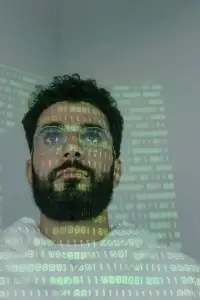We’re living in a time when technology has permeated every aspect of our lives. From the way we communicate to how we learn, everything is being shaped by the digital age. In fact, some argue that this is the beginning of a new era for humanity — one that could be defined by our interactions with each other and with machines.
The world has changed tremendously since computers were first introduced as tools for business and science. But while many countries are now embracing their potential to radically disrupt industries and transform lives, others are just starting to explore these possibilities. This raises questions about how to ensure everyone benefits equally from technology in an increasingly interconnected global community — especially when it comes to achieving social justice through digital transformation.
Digital Rights are Human Rights

Digital rights are human rights. In fact, digital rights are a subset of human rights. Human rights are the basic moral principles that everyone is entitled to regardless of their nationality, sex, ethnicity, religion or other beliefs.
Human Rights include:
Freedom from torture and inhuman treatment
Freedom from slavery and forced labour
Equal treatment before the law
The right to life (and liberty) without arbitrary arrest or detention; fair trial; freedom from torture or cruel treatment; due process of law under which one can claim his/her legal rights before a court or tribunal at reasonable intervals; right to privacy (freedom from unwarranted intrusion into personal life)
The Internet Isn’t Neutral
The Internet isn’t neutral. The internet is a public good. It’s a platform for free speech and innovation, democracy and education, and communication—and it should be treated as such by governments and companies alike.
We need to stop pretending that the internet is a neutral space. The digital economy has given rise to powerful monopolies that control everything from our politics to our entertainment options; they shape how we connect with each other online through their algorithms; they define what news we see on social media or search engines; they influence how we interact with each other in the real world by using location-based services like Foursquare or Uber.
A Just Digital Society Values the Commons and Environment

The idea of the commons is a shared resource that can be used by all. It has been around for hundreds of years and its roots are firmly in our common cultural heritage. This notion is exemplified by the fact that there are over 100 definitions of what exactly constitutes a commons, but it all comes down to this: it’s anything we share as members of society.
In terms of digital technology, the commons includes publicly-funded research and development (R&D), code libraries like Linux, open-source software projects like Wikipedia, public domain music recordings like those found at archive.org — basically, anything that’s available for free or cheap online can fall under this category
A Just Digital Society is not a Surveillance Society
We believe that surveillance is a violation of human rights. Surveillance is used to control people and suppress dissent, targeting vulnerable communities. It can also be used to target activists and journalists, who are already at risk of suffering persecution, imprisonment or even death because of their work.
We believe that surveillance should not be an instrument of control but rather an opportunity for dialogue that strengthens our digital rights in the context of democratic values and processes. We must resist attempts by governments and corporations to use technology as a tool for repression rather than using it as a tool for building democracy and social justice.
We can create a just digital society by respecting human rights, valuing the commons, and working to protect privacy and democracy.

We can create a just digital society by respecting human rights, valuing the commons, and working to protect privacy and democracy.
First, we need to respect human rights online. The Universal Declaration of Human Rights was written in 1949 by representatives from across the world with the goal of protecting all people from discrimination based on their race or ethnicity, religion, gender or social status. Today we see constant attacks on this declaration through online hate speech or targeted harassment campaigns against women and minorities in particular.
We also need to value the commons online—that is anything that we share as part of humanity: culture (music), knowledge (academic articles). A valuable example is Wikipedia; it’s one of our most valuable tools for accessing information and sharing ideas with each other but it’s also being threatened by companies like Facebook which are using automated bots to promote their own content over others. This has led some users who rely on Wikipedia for their news consumption habits to feel less connected with people who use other platforms such as Twitter where they may receive different perspectives than those presented via Facebook algorithms that promote certain types of content over others based upon its popularity among users within certain demographic groups like age range or political affiliation
Conclusion
In the digital age, it is our responsibility to create a just society by ensuring that everyone has access to the Internet. We can do this by working towards universal access and providing resources for those who are disadvantaged in some way.

